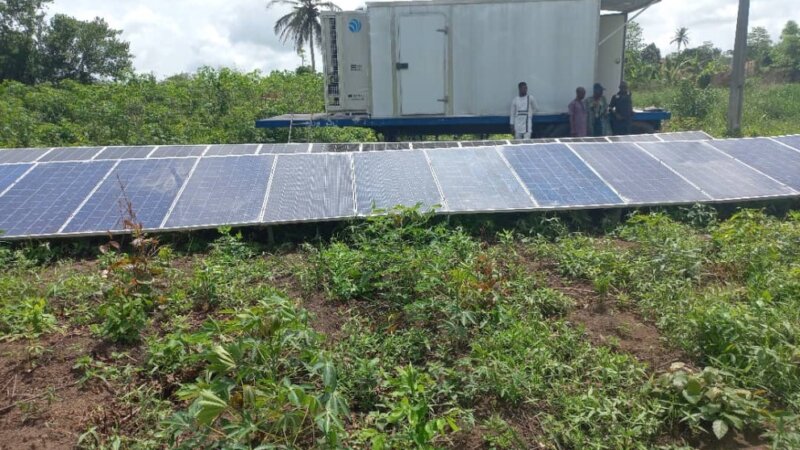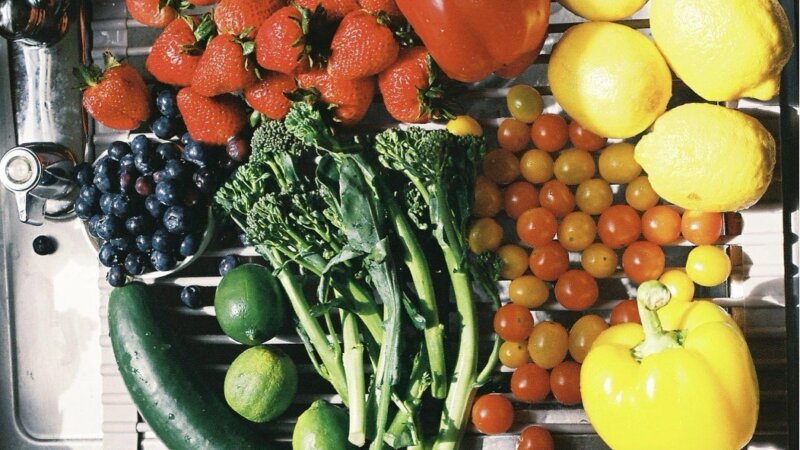24 Teams of the 2025 Food Systems Innovation Challenge Announced!
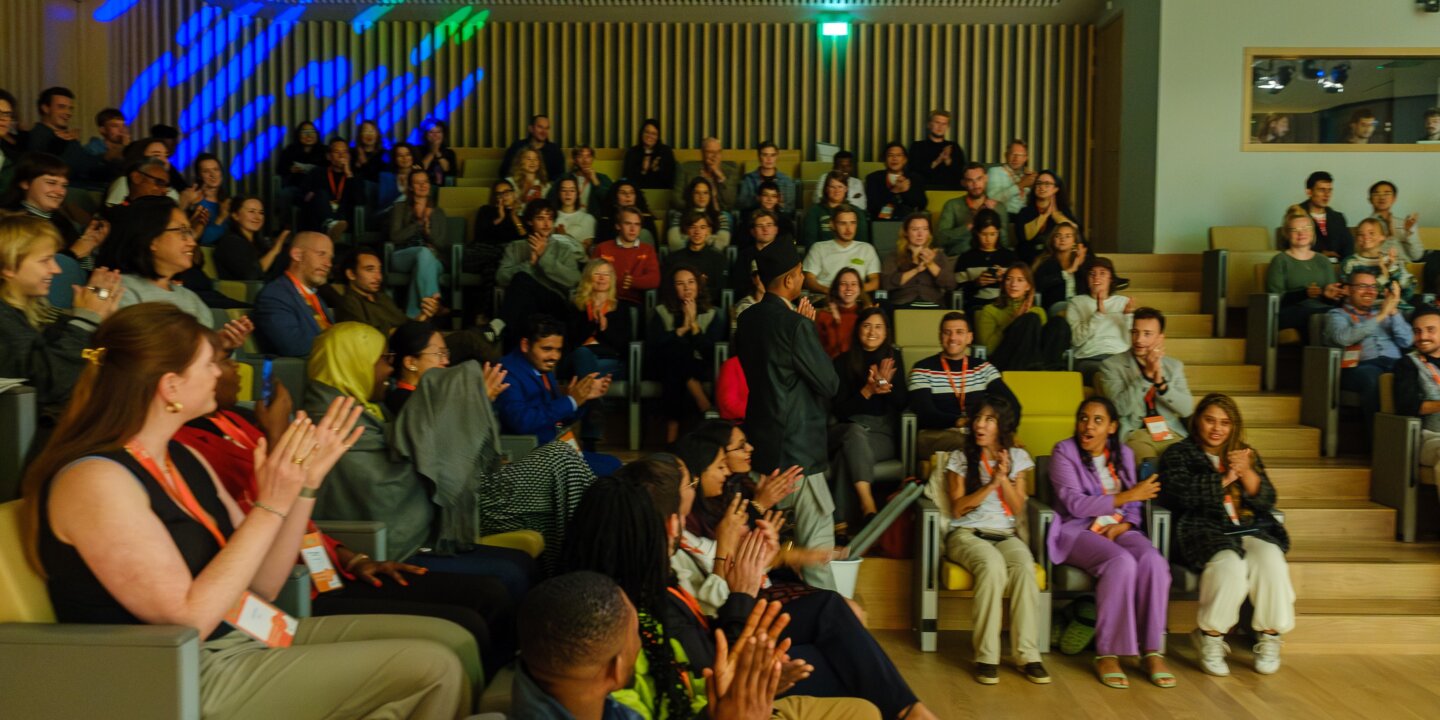
In the 2025 Food System Innovation Challenge on Nature-based Solutions, 24 teams from 12 different countries have been selected to implement their innovative solutions in the food system through their project. With mentoring from experts in the field and funding (up to 1000 euro), they are working on their projects starting from April until September 2025, with the Grand Finals on 30 September 2025 on Wageningen Campus. Read more about the teams and their goals for this student challenge below!
Makerere University, Uganda
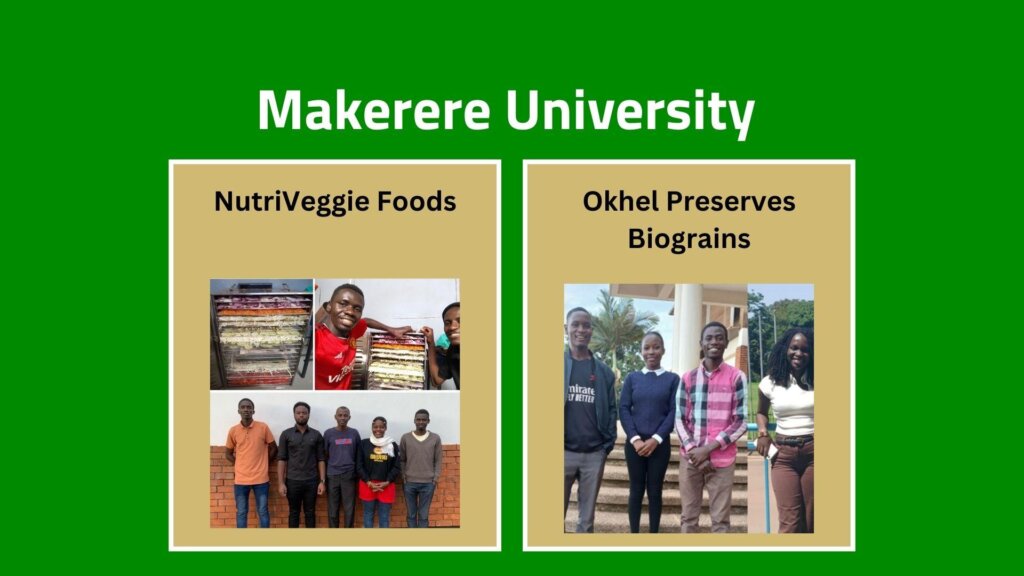
NutriVeggie Foods
The team's goal is to address the low consumption of fruits and vegetables among Ugandans, particularly students, which correlates to a high risk of noncommunicable diseases. They aim to develop "VegetableBlend," a ready-to-eat vegetable powder that can be mixed into meals to increase vitamin and mineral intake. Their mission is to improve public health by making vegetable nutrients more accessible and convenient.
Okhel Preserves BioGrans
The team aims to revitalise and modernise the traditional African granary by combining ecological, cost-effective, and bio-based solutions to improve storage conditions. They intend to improve granary performance by incorporating materials such as High-Density Polyethylene and Polypropylene to manage moisture and reduce insect damage. Their goal is to provide farmers with a practical, cost-effective solution for long-term food storage that solves both physical and economic losses.
Wageningen University & Research, The Netherlands
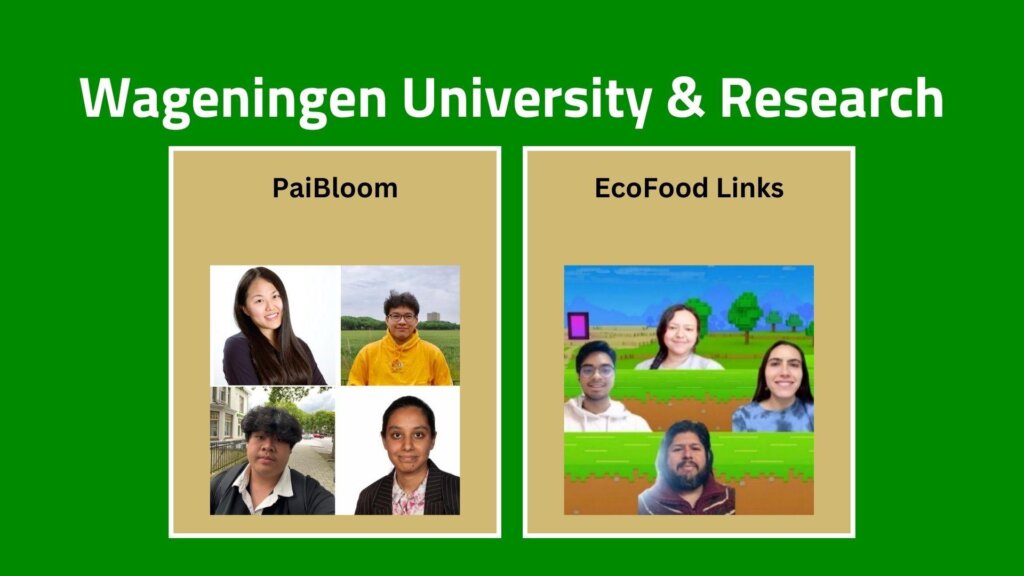
PaiBloom
The team's goal is to develop a regenerative and traceable longan production strategy that will empower smallholder farmers in Pailin by promoting sustainable practices and local processing. They aim to reduce post-harvest losses, increase market access, and create healthier, naturally sweet longan-based products as alternatives to sugary snacks. Their goal is to increase farmer earnings, improve food safety standards, and address growing health concerns about sugar use.
EcoFood Links
The team's goal is to connect Wageningen's urban food systems and green spaces to create a connected ecological network that will reduce the detrimental effects of urban growth. They hope to improve ecosystem services, create urban-rural connectedness, and promote sustainable landscape management through urban gardens and stakeholder participation. Their mission is to balance urban growth with ecological integrity, promote local food production, and reinforce natural resource cycles.
The Anton de Kom University of Suriname (ADeKUS), Suriname
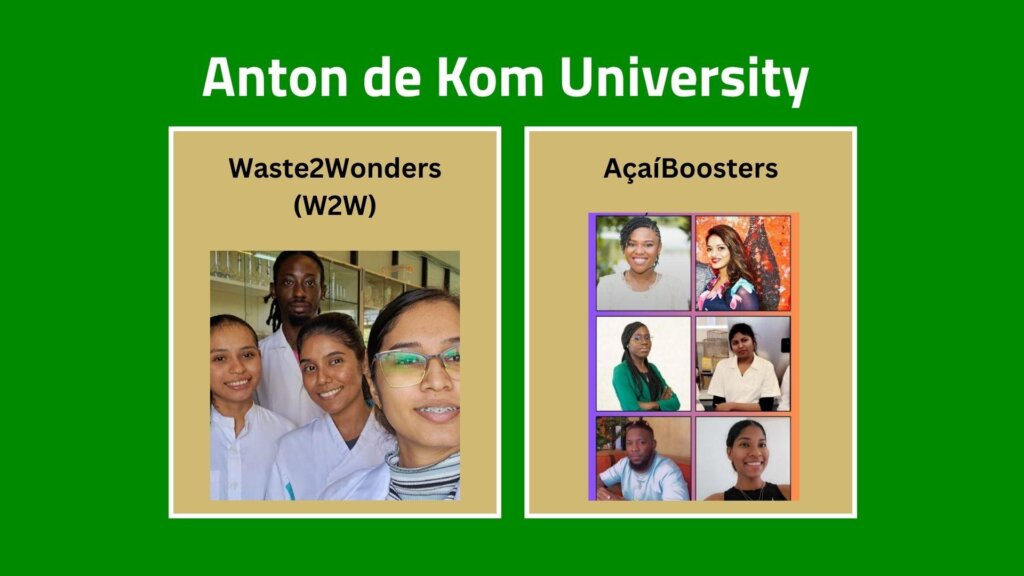
Waste2Wonders (W2W)
The team aims to reduce plastic pollution in Suriname's agricultural sector by creating biodegradable planting pots comprised of rice husk, cocopeat, and cow manure. Their product is an environmentally friendly alternative to plastic trays that also repurposes agricultural waste and promotes plant growth. The project encourages sustainable farming practices and generates new employment prospects.
AçaíBoosters
The team seeks to reduce açaí spoilage in Suriname by creating a yoghurt with a minimum shelf life of 7 days. This would promote healthier food options and reduce food waste. The goal is to develop the açaí value chain by promoting collaboration among producers, processors (particularly female entrepreneurs), students, and consumers. Their mission is to increase rural incomes, promote sustainable production techniques, and contribute to numerous Sustainable Development Goals (SDGs) through innovation and collaboration.
University of Abuja, Nigeria
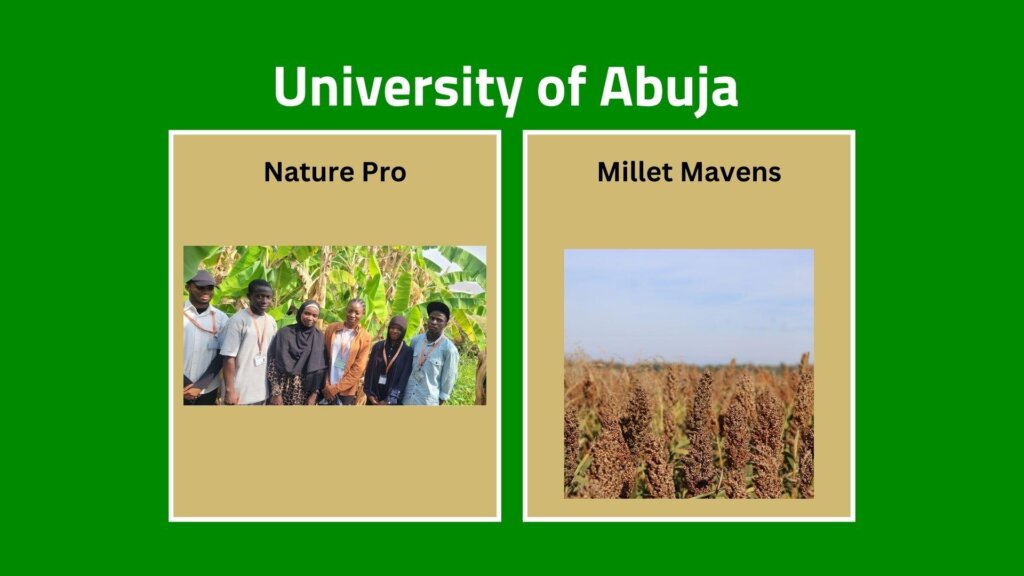
Nature Pro
The team's goal is to create biodegradable, environmentally friendly, and safe alternatives to styrofoam food packaging, which poses significant health and environmental dangers. They are searching for materials that are affordable, non-toxic, and universally accepted by consumers. Their mission is to promote safer food packaging alternatives that benefit both human health and the environment.
Millet Mavens
The Millet Mavens aim to create sustainable millet-based products including flour, powdered milk, and oil pesticides to combat food insecurity, promote better diets, and mitigate the consequences of climate change. They plan to promote biodiversity restoration, reduce chemical use in agriculture, and generate new economic options for farmers. Their goal is to increase awareness of millet's variety and nutritional benefits, strengthening local food systems and fostering economic and environmental resilience.
Kathmandu University, Nepal
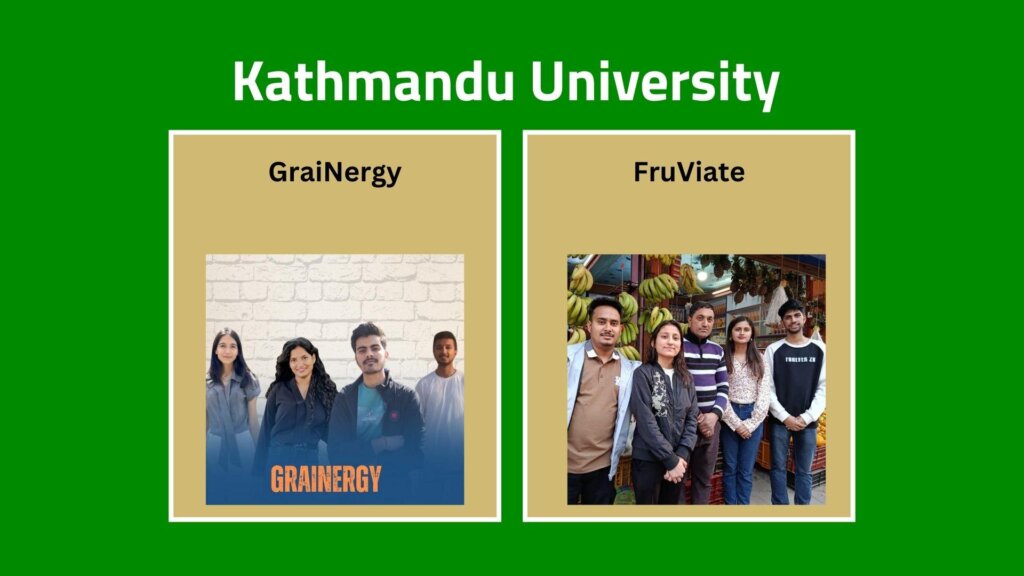
GraiNergy
The team's goal is to create Nutrimillet Energy Bites, a healthy, natural snack created from locally sourced ingredients such as millet, jaggery, flaxseeds, and overripe raspberries, to promote improved nutrition and reduce food waste in Nepal. They aim to improve public health by providing a chemical-free, renewable energy source while also promoting local agriculture and empowering farmers. They will develop a modern, culturally relevant food product that will boost Nepal's food economy and promote healthy eating habits.
FruViate
The team aims to decrease food waste in Kavrepalanchowk by transforming watermelon rinds and coconut wastes into nutritious, shelf-stable gummy products. They want to build a sustainable value chain that not only reduces trash but also promotes healthy eating and generates local jobs. Their goal is to provide an alternative to synthetic gummies, helping to create a more sustainable and nutritious food system while minimising environmental effect.
Lukenya University, Kenya
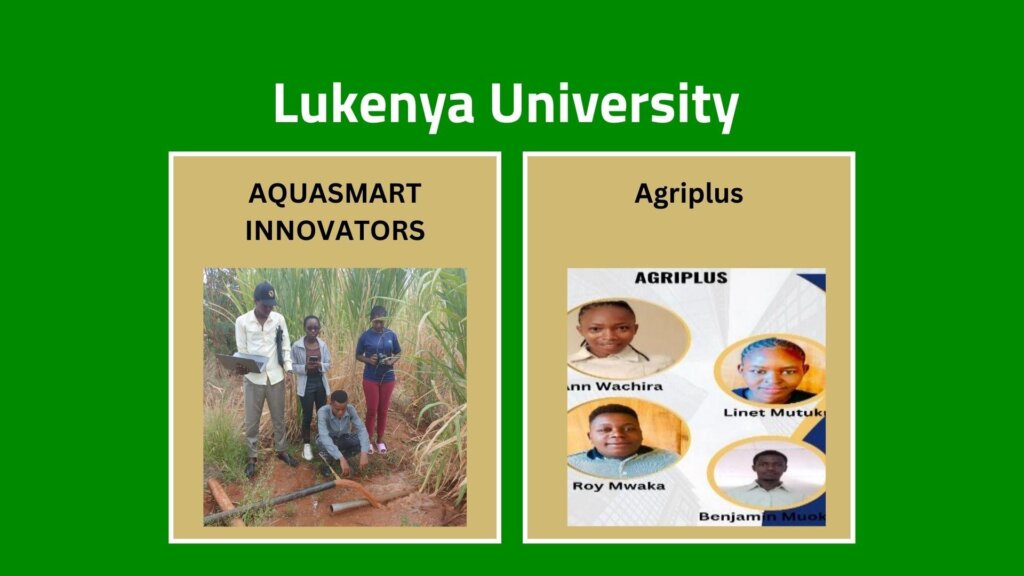
AgriPlus
The team's goal is to establish fish farming as a sustainable economic activity in dryland areas, complementing poultry raising, in order to improve food security and living conditions. They hope to reduce poverty and hunger by fostering the blue economy, as well as to combat the effects of global warming. Their mission is to provide marginalised communities with the resources and information they need to develop resilient, self-sustaining livelihoods.
AquaSmart Innovators
The team's goal is to alleviate water scarcity and inefficient irrigation in Kenya's arid and semi-arid regions by creating a Smart Agri-Water Management System that combines sensor-based irrigation, rainwater collection, and renewable energy. Their goal is to maximise water use, raise crop yields, and improve climate resilience for smallholder farmers, all while introducing drought-resistant African Indigenous Vegetables (AIVs) as cover crops. The initiative aims to develop a sustainable agricultural strategy that increases food security while conserving water resources.
University of Brawijaya, Indonesia
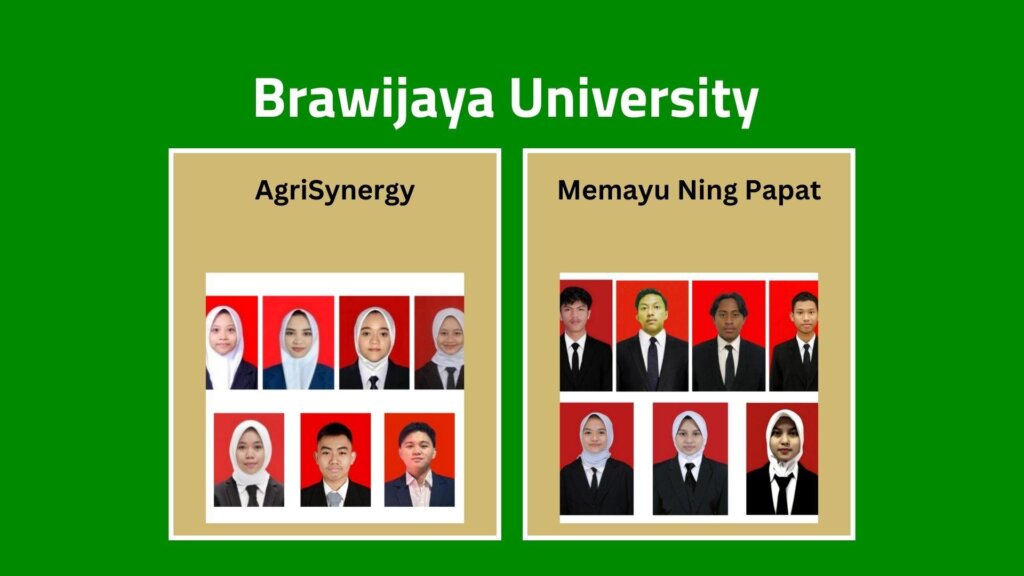
AgriSynergy
The team's goal is to increase rice output in the face of climate change by incorporating plant and animal species into the traditional "salibu" ratoon rice farming method. By adding ducks and legumes, they hope to reduce pesticide usage, labour, and environmental effect while increasing yields and food security. Their goal is to develop a diverse, climate-resilient farming system that helps rural communities, improves nutrition, and promotes food sovereignty.
Memayu Ning Papat
The team intends to establish ecologically friendly farming practices in Jenggolo Village by including fish, azolla, and lemongrass into rice production systems to naturally manage pests and diversify farmers' income. This nature-based solution aims to reduce reliance on chemical inputs, increase rice yields, and offset the effects of climate change on rice farming. The project aims to increase farmer welfare, promote sustainable farming techniques, and safeguard local water supplies and biodiversity.
University of Ghana, Ghana
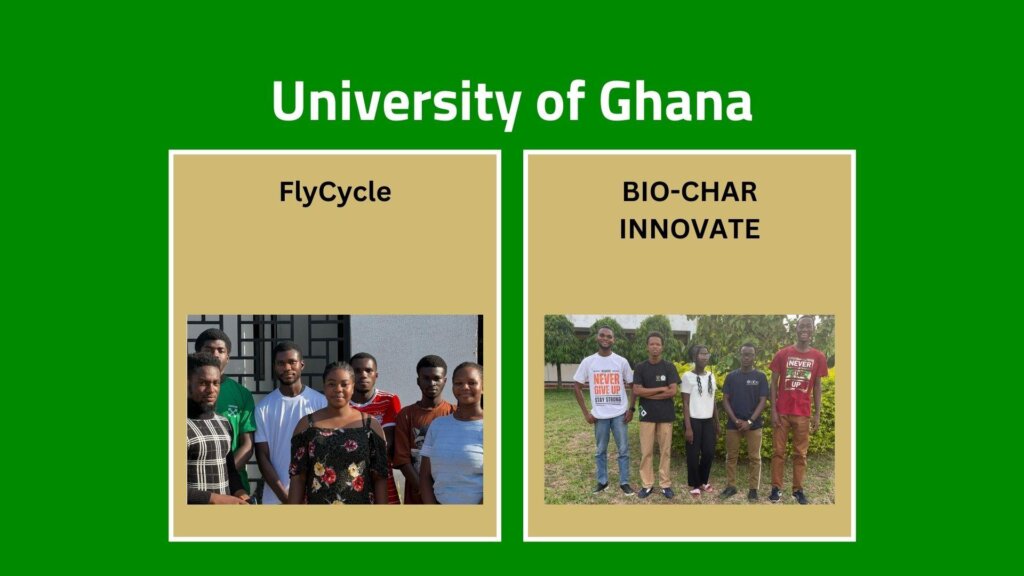
FlyCycle
The team's goal with Black Soldier Fly farming is to address organic waste management and lessen Ghana's reliance on soybeans and fish meal in animal feed manufacturing. Their idea will turn organic waste into high-protein feed and organic fertiliser, lowering waste pollution and providing an environmentally sustainable answer for farms. The goal is to establish a lucrative and sustainable agriculture system that benefits both the environment and the local farming community.
Bio-Char Innovate
The team's goal is to create a low-cost, charcoal-based hydroponic farming model that will increase vegetable production in both urban and rural locations while solving land shortages and water scarcity. The initiative uses a recirculating nutrient system to promote food security, minimise water usage, and offer economic opportunities for kids and women. It also encourages sustainable waste management by using locally obtained charcoal and organic fertilisers, which benefits both local populations and the environment.
Wollo University, Ethiopia
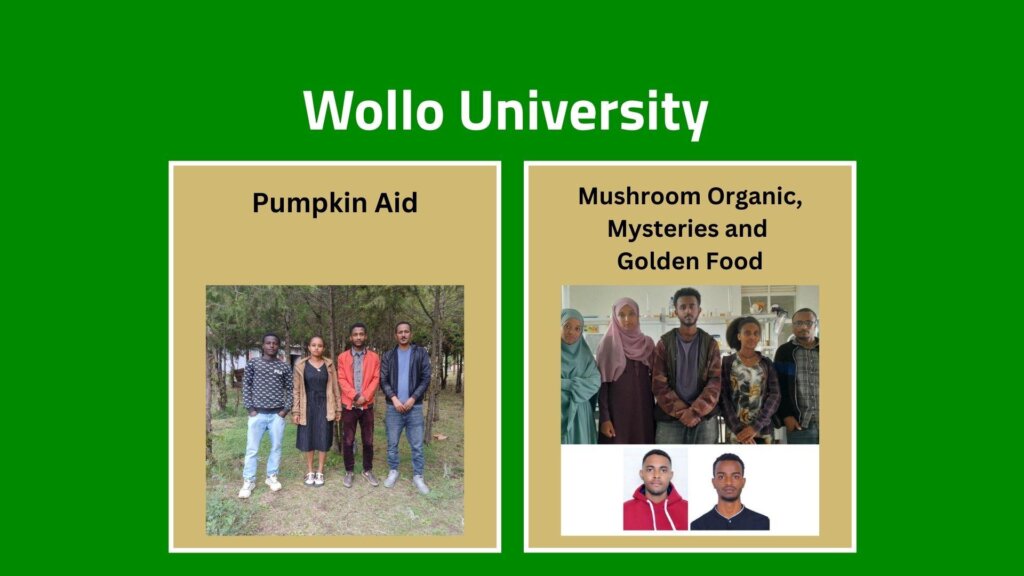
Pumpkin Aid
The team's goal is to reduce undernutrition in Ethiopia by encouraging the growing and consumption of pumpkin and its nutrient-dense seeds. The project aims to improve nutrient intake, increase food security, and reduce food waste by implementing sustainable farming practices and new food processing processes. By raising knowledge of pumpkin's nutritious potential, the project hopes to diversify diets, boost supply chains, and contribute to Ethiopia's national food system.
Mushroom: Organic, Mysteries and Golden Food
This initiative intends to alleviate malnutrition and food insecurity in South Wollo Zone, Ethiopia, by introducing mushrooms as a nutritious, low-cost, and climate-resilient food source. The project aims to enhance livelihoods and decrease poverty by providing mushroom farming training to women and unemployed youth. It also encourages sustainable agriculture techniques based on agro-waste, which aligns with Ethiopia's climate-resilient aims and helps to accomplish numerous UN Sustainable Development Goals.
University of São Paulo (ESALQ/USP), Brazil
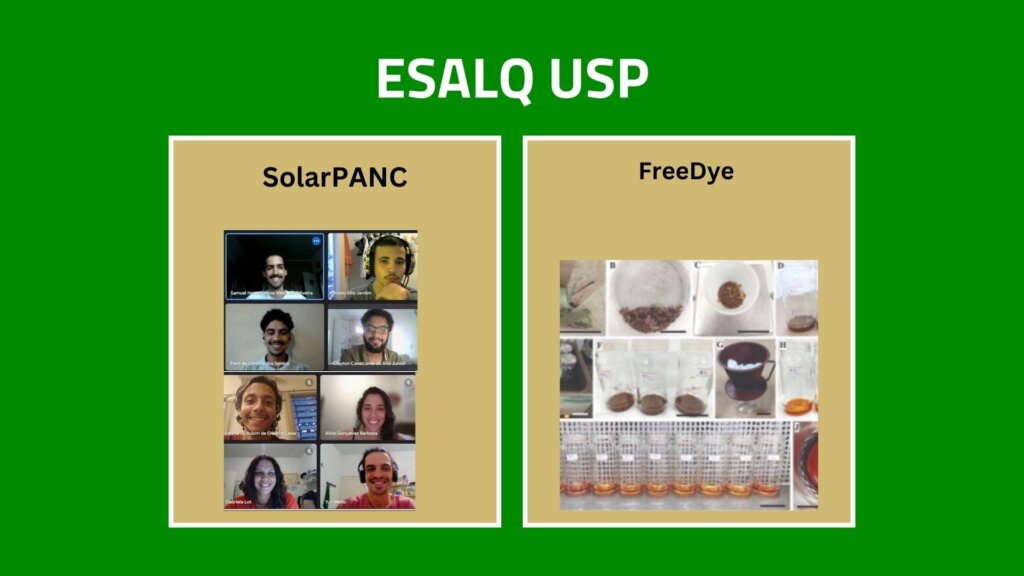
SolarPANC
In Brazil, the spread of industrialised agriculture has eroded biodiversity and traditional food knowledge, resulting in food instability and nutritional inadequacies, particularly among marginalised people. This research attempts to solve this by returning Unconventional Food Plants (UFPs) and medicinal species into local food systems through the use of solar dehydration technologies for effective preservation. As a result, it aids community efforts to recover traditional plant knowledge, improve food sovereignty, and foster sustainability.
FreeDye
This initiative addresses the health problems connected with synthetic food dyes by presenting a natural alternative produced from the Brazilian plant crajiru (Fridericia chica). The plant's high-quality pigments, which are more stable and have better fixation than other natural dyes, are harvested and synthesized in controlled conditions to boost productivity. The project's goal is to replace synthetic dyes in the food sector with crajiru pigments, encouraging sustainability, enhancing food safety, and addressing consumer demand for healthier, more natural products.
Bangladesh Agricultural University, Bangladesh
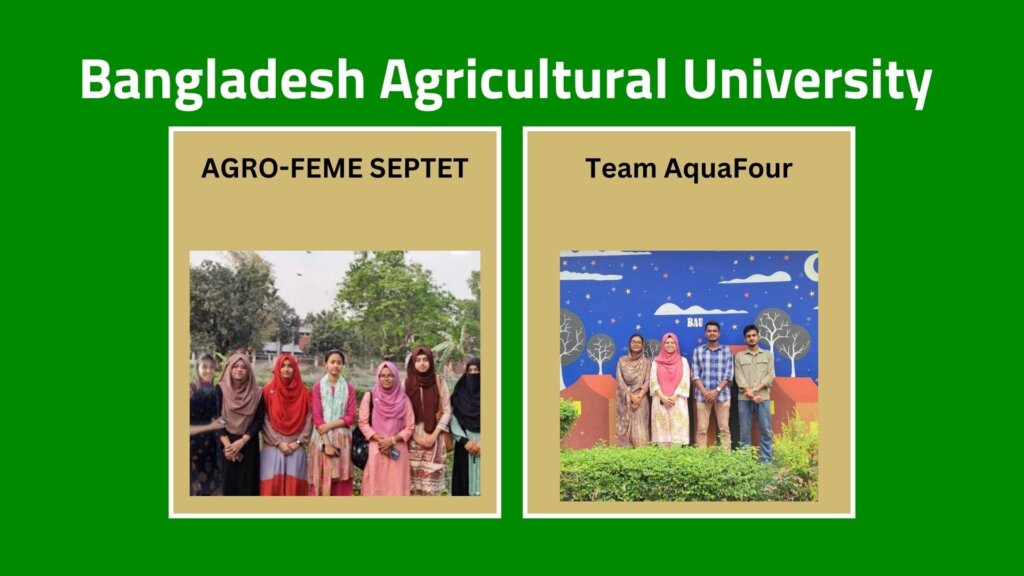
AGRO-FEME SEPTET
This project intends to alleviate eutrophication and water hyacinth invasion in Bangladesh's freshwater bodies by building an integrated horticulture-aquaculture system. The system will use water hyacinth to grow vegetables and filter-feeder fish, thereby reducing nutrient pollution and improving water quality. The ultimate goal is to repair derelict water bodies, improve local nutrition, and support livelihoods by transforming these regions into profitable agricultural and aquaculture zones.
Team AquaFour
This initiative seeks to address water depletion and soil degradation issues in Mymensingh, Bangladesh, by creating a nature-based hydrogel from agricultural waste such as potato peels, banana peels, and okra stems. Within six months, the hydrogel will cut irrigation water use, enhance soil moisture retention, and boost soil organic carbon levels. This project uses agricultural waste to not only alleviate water scarcity and improve soil fertility, but it also minimises environmental pollution produced by garbage burning.
Can Tho University & Tra Vinh University, Vietnam

Ecoshrimp
Vietnam is one of the world's leading suppliers of farmed shrimp, with farms typically consisting of shrimp cultivation ponds and supporting ponds designated for water treatment. However, these supporting ponds are often underutilized. Team Ecoshrimp seeks to transform them into productive, sustainable ecosystems by introducing a nature-based, multi-species pond system that integrates mangrove forests, seaweed cultivation, aquaponics, and native fish. This approach enhances environmental resilience while increasing overall farm productivit
EarthFeast
Rice-shrimp farming is a nature-based agricultural practice where farmers cultivate shrimp alongside rice, adapting to the natural cycles of alternating saltwater and freshwater. Despite its sustainability, rice-shrimp farming cooperatives in Tra Vinh province, Vietnam, face significant challenges, including market instability, an ageing workforce, and limited access to technology. Team EarthFeast aims to scale this sustainable practice and raise consumer awareness by developing a digital platform that directly connects farmers with traders, improving market access and transparency.


